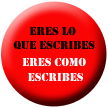Por fin tomando un curso de Open Journal Systems -parte del Public Knowledge Project-, en virtud de que desde que entré a trabajar a esta revista se tiene el proyecto de utilizar la aplicación para administrar el proceso editorial. La verdad es que echar a andar OJS es proceso largo, rara vez complejo, locamente laborioso, y si no se cuenta con un departamento de cómputo que entienda cómo carajos hacer que funcione el servidor con Apache y que MySQL de verdad conforme la base de datos, no es recomendable jugar al editor del S. XXI.
El proyecto (disfruten del chisme/adelanto) tiene el fin de consolidar algo llamado "ego puma"; v.g. buscar rutas que coloquen a la H. Universidad Nacional Autónoma de México en mejores puestos dentro del ranking mundial. Una de las principales es darle mayor visibilidad y factor de impacto de las publicaciones académicas, su indización en ISI Web of Knowledge y Scopus, y dicho en poquísimas palabras, índices bibliométricos cada vez más altos que reflejen el alto nivel de la investigación que se realiza en casa. OJS, en tanto gestor de contenidos editoriales, pensado específicamente para publicaciones académicas, desarrollado por editores que apuestan por el libre acceso a las investigaciones recientes (muera el celo y la administración capitalista del conocimiento), cumple la función de eficientar y dar seguimiento a los procesos editoriales; eso, toda proporción guardada, ha sido mi función en esta revista desde hace ya dos años.
La tendencia "natural" que siguen las publicaciones (de cualquier corte) es la vía digital, aun cuando es estricto sentido es antinatural; el acceso en línea a cantidades insospechadas de información, de absolutamente todos los temas, permite la democratización que durante siglos ha sido meramente una ilusión. Si Leonardo fue El Gran Leonardo se debe a que tenía acceso a una biblioteca descomunal (en su momento) y pudo integrar y derivar ese conocimiento en aplicaciones que sobrepasaban a la información cruda.
Todo esta divagación se debe a que hoy me pasaron la siguiente nota, publicada en Facebook (ah, qué Web 2.0 soy [ajá...]) por Brena Smith, o eso creo, porque en realidad está almacenada en la cuenta de la biblioteca de CalArts y no encuentro quien la firme. Copio verbatim, así que los errores que le encuentren vienen de la fuente.
El proyecto (disfruten del chisme/adelanto) tiene el fin de consolidar algo llamado "ego puma"; v.g. buscar rutas que coloquen a la H. Universidad Nacional Autónoma de México en mejores puestos dentro del ranking mundial. Una de las principales es darle mayor visibilidad y factor de impacto de las publicaciones académicas, su indización en ISI Web of Knowledge y Scopus, y dicho en poquísimas palabras, índices bibliométricos cada vez más altos que reflejen el alto nivel de la investigación que se realiza en casa. OJS, en tanto gestor de contenidos editoriales, pensado específicamente para publicaciones académicas, desarrollado por editores que apuestan por el libre acceso a las investigaciones recientes (muera el celo y la administración capitalista del conocimiento), cumple la función de eficientar y dar seguimiento a los procesos editoriales; eso, toda proporción guardada, ha sido mi función en esta revista desde hace ya dos años.
La tendencia "natural" que siguen las publicaciones (de cualquier corte) es la vía digital, aun cuando es estricto sentido es antinatural; el acceso en línea a cantidades insospechadas de información, de absolutamente todos los temas, permite la democratización que durante siglos ha sido meramente una ilusión. Si Leonardo fue El Gran Leonardo se debe a que tenía acceso a una biblioteca descomunal (en su momento) y pudo integrar y derivar ese conocimiento en aplicaciones que sobrepasaban a la información cruda.
Todo esta divagación se debe a que hoy me pasaron la siguiente nota, publicada en Facebook (ah, qué Web 2.0 soy [ajá...]) por Brena Smith, o eso creo, porque en realidad está almacenada en la cuenta de la biblioteca de CalArts y no encuentro quien la firme. Copio verbatim, así que los errores que le encuentren vienen de la fuente.
To Kindle or not to KindleNotita: esta revista donde heroicamente me desempeño está listada en el DOAJ.
I love books. I love all kinds of books - fiction, nonfiction, old books, new books (and sometimes even trashy books)...I love the printed page. I can't edit my writing on a computer, I have to print it out to make my edits. Despite all of the wonderful digital content available through various databases that I access regularly, I print it all out when I settle in to read. I often read when I eat. I normally read for at least a little bit before I fall asleep. If I were to add up all of the hours and days of my life that have disappeared into books, it would be...umm, a lot of time.
To my dismay, over the past several years there have been many commentators who state that the printed book is suffering a serious illness. The book is not not necessarily on its death bed, but sick. Very, very sick.
Unless you've been hiding under a rock, then you know the world of print publishing is changing. The print world is in decline, there's no way around it, there's no argument. Print publishing as everyone 30 and older has known it is going away. (Mr. Guttenberg is rolling over in his grave right now).
I follow the issues related to publishing very closely. It's part of my job as a librarian. Issues around publishing are very important to my profession because it directly impacts our libraries' collections and peoples' access to information. It is also important to my patrons, which include - because I am an academic librarian - college students and teaching faculty. Publishing is extremely important to the job security of many teaching faculty and can, in fact, make or break the careers of faculty members. What will they do if publishers cease to publish?
But I am not here to expound on how the decline of print publishing is affecting careers, access to information, education, or the spread of knowledge. These are other topics for other days. I am here to begin to pose questions about alternative ways to access books. The book is not going away, it just may look a little different than many of us are use to.
Earlier this year I went to hear a panel of professors speak who are active in the world of open access. The quick and dirty definition of open access is material that is published online and is freely available.* These professors I heard are strong advocates for open access publishing in many formats, including books. They are are in general strong advocates of alternative publishing. And on the topic of the book one professor claimed "we have fetishized the book;" we need to begin to think differently about the book.
I gasped. But the book is precious. It's important. Books change lives. It's..it's..it's... I. Love. Books.
And then I heard myself. I realized this man was right. We have fetishized the book. And from that point I began to question my relationship with books.
For a librarian, this could be considered a crisis of faith.
I remember several years ago when I first heard about the Kindle. I was with my sister and we were listening to the news. "Oh the horror!" I remember thinking about the report on the Kindle. I just couldn't imagine reading a book in it's entirety on an electronic object. I didn't think this Kindle thing would catch on. I had faith in my fellow book lovers. I ignored it. I ignored it the way we all ignore things that we know are not going away when we want them to.
I have been proven wrong. (This happens only on rare occasions. But it does happen). The Kindle (or any e-reader that matter) isn't going anywhere.
Publishing is changing. Our notion of the book is changing. We must admit this.
So, in the spirit of open-mindedness and "to try it before I knock it," I am giving the Kindle a shot. Luckily the CalArts Library purchased a Kindle and has been passing it around to the staff, so I don't need to shell out the $299. I will provide my review here and welcome your feedback.
I will say that my trial has gotten off to a rough start. I was given the Kindle last Friday and was excited to have it for the holiday weekend. As soon as I got home I pulled it out and prepared to charge it because the battery was dead. ...And realized - I, umm, forgot the power cord in my office. Sigh.
I'm not sure how I feel about book that require power.
In the coming weeks I will also be looking at different ways that libraries are utilizing e-book readers. I am very curious to hear from the CalArts community (and non-CalArts people as well!) concerning your thoughts about being able to access an e-book reader through the library and just your general thoughts on electronic books.
Happy reading!!
*Peter Suber of Earlham College in Indiana offers a good introduction to open access available here: http://www.earlham.edu/~peters/fos/overview.htm
The Directory of open access journal http://www.doaj.org/ provides a gateway to 4344 peer-reviewed journals. 1648 of them are searchable at the article level. All scientific and scholarly disciplines are represented, as are many languages.







6 comentarios:
Juliancito de mi vida te escribe la niña Barrita ahí nomás para avisarte que debes actualizar la liga de mi blog porque ya tengo uno nuevo, jejeje. Nos leemos. Muchos besos. Hace falta otra reunión en tu casa y tus gatos.
Niña Barrita de mi corazón, ahora mismo actualizo la liga.
Prometería la reunión en casa, pero si antes me apenaba que apenas había sillas donde sentarlos, ahora no hay más que dos sillas donde se sienten los gatos (porque ah, si han de ser posesivos con la casa).
¿Una chela en algún otro lugar?
Donde ustede me diga y cuando usted diga y mande, jejeje.
Abrazos
Ah, pos entonces nomás organizo las faenas de la casa (v.g. mandar a la jodida a ver qué pedazo de trabajo) y mando mensajito con la advertencia correspondiente.
Beso
Rayos y centellas, los %$#%#$& índices biblometricos y cienciométricos... al carajo su ISI que nomás sirve pa' que los docentes se contagien de puntitis y que se la pasen haciendo refritos a los que sólo les cambian dos palabras y los envían a todos lados.
Shiale...que viciado asunto. ¿Acaso quedará algún docente decente que en realidad tenga vocacione de enseñar en vez de tener vocación por acumular puntos para el PROMEP y su $#%#$%$# beca al desempeño?
Si me preguntan, yo creo que no... Como casi todo, los índices son arma de dos filos, y el que debiera ser útil (en amplio sentido) queda enterrado bajo kilos y kilos de intereses políticos. Ni qué hacer salvo seguir.
Publicar un comentario